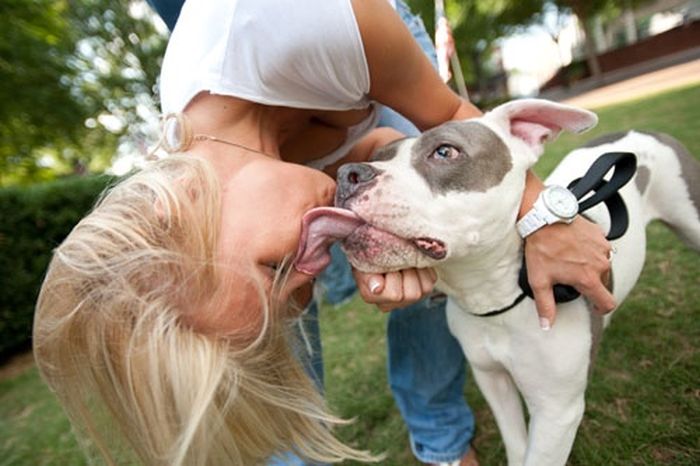|
|
Dog
|
The English word dog comes from Middle English dogge, from Old English docga, a "powerful dog breed". The term may derive from Proto-Germanic dukkōn, represented in Old English finger-docce ("finger-muscle"). The word also shows the familiar petname diminutive -ga also seen in frogga "frog", picga "pig", stagga "stag", wicga "beetle, worm", among others. Due to the archaic structure of the word, the term dog may ultimately derive from the earliest layer of Proto-Indo-European vocabulary, reflecting the role of the dog as the earliest domesticated animal.
In 14th century England, hound (from Old English: hund) was the general word for all domestic canines, and dog referred to a subtype of hound, a group including the mastiff. It is believed this "dog" type of "hound" was so common it eventually became the prototype of the category “hound”. By the 16th century, dog had become the general word, and hound had begun to refer only to types used for hunting. Hound, cognate to German Hund, Dutch hond, common Scandinavian hund, and Icelandic hundur, is ultimately derived from the Proto-Indo-European kwon- "dog", found in Welsh ci (plural cwn), Latin canis, Greek kýōn, Lithuanian šuõ.
In breeding circles, a male canine is referred to as a dog, while a female is called a bitch (Middle English bicche, from Old English bicce, ultimately from Old Norse bikkja). A group of offspring is a litter. The father of a litter is called the sire, and the mother is called the dam. Offspring are generally called pups or puppies, from French poupée, until they are about a year old. The process of birth is whelping, from the Old English word hwelp, (cf. German Welpe, Dutch welp, Swedish valp, Icelandic hvelpur) .
|
|









